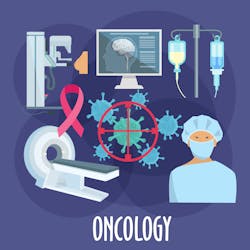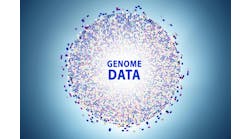During the past 25 years as a medical oncologist, I have had the privilege of witnessing many exciting advancements in the battle against cancer. One of the most promising has been the emergence of precision medicine, an approach to patient care that enables physicians to select the most-effective treatments based on the genetic makeup of a patient and the patient’s underlying disease.
Today we know about specific mutations that relate to how cancers start and spread. This information has led to targeted treatments. The more specific a treatment is to the cancer, the fewer the side effects to the patient and the more effective the treatment is likely to be. This is a dramatic shift from how cancer was primarily treated 10 or 15 years ago―and how it is still treated today if no molecularly targeted options exist. For example, chemotherapy is generally directed at rapidly dividing cells and DNA replication. Unfortunately, this can also be very detrimental to normal cells, which is why significant side effects are common with standard chemotherapy.
Precision medicine opens a new door to treatment choices and targeted therapies that provide better results with less toxicity. While precision medicine has not solved all of the mysteries of cancer―which is still incurable for many patients―it has expanded the cancer treatment armamentarium and transformed how cancer specialists practice. As much as precision medicine impacts cancer diagnosis and treatment today, it will be even more prominent in the future.
Progression of precision medicine
One of the earliest examples of using information about the genetic makeup of a tumor to determine treatment choices was roughly 50 years ago when hormone receptors on breast cancer cells were identified. Since then, physicians have been making treatment decisions for breast cancer based on whether hormone receptors are expressed. Even today, this information is important to know before treating a woman with breast cancer.
Roughly 25 years ago, another breakthrough occurred when a targeted agent against the BCR-ABL gene rearrangement was approved that markedly improved outcomes in patients with chronic myeloid leukemia. Similar developments followed in diseases like lung cancer where specific mutations were identified that were amenable to targeted therapy.
Over the last decade, many new mutations have been discovered that cause cancer and act as targets for therapy. A good example is NTRK fusion, identified a few years ago. The mutation is rare but can be present in a variety of cancers like lung, thyroid, brain, colon, soft tissue and bone cancers. When identified, targeted therapy is the first choice. New mutations continue to be discovered that can provide new avenues for treatment. This is where the excitement comes in—as new mutations are detected, new and better therapies will follow.
Next-generation sequencing empowers precision medicine
Much of the progress with precision medicine is due to next-generation sequencing (NGS), a technique for higher throughput that can identify alterations in DNA or RNA. This advanced technology is used to evaluate a tumor sample, screening and surveying hundreds of mutations simultaneously. This is in contrast to labor-intensive first-generation sequencing methods where typically only four or five genes are evaluated at a time.
The ability to simultaneously test hundreds of possible gene mutations at once is a true revolution in sequencing that has the potential to alter the future of cancer care, as well as other disease types. Enabling testing of more genes provides a better opportunity to identify the one that is actually driving the cancer. If a thousand possibilities exist but only three or four genes are tested, it is highly unlikely the mutation responsible for the cancer will ever be found. However, if all genes are surveyed, chances are the driver will be identified leading to the best therapy.
Precision medicine is used in different ways
Since cancer is typically driven by gene alterations, it lends itself to gene testing more than most other adult diseases. Molecular testing is also used to identify hereditary mutations, that is, mutations people are born with that put them at high risk of developing cancer or other diseases. Testing a person or a family to see if they have certain hereditary gene mutations that increase the likelihood of cancer enables proactive and preventative strategies.
Precision medicine also plays a pronounced role in clinical research for cancer therapy. For example, collecting comprehensive genetic data on patients today provides a profile that can be part of a search to identify patients for studies to test novel drugs.
Patients with rare genetic disorders are also benefitting from precision medicine, to diagnose or confirm clinical findings and to test family members to see if they are affected.
Whole genome sequencing, the mapping of a person's entire DNA at a single time is possible today where it was unthinkable several years ago. The clinical uses of whole genome sequencing are just beginning to be understood but the opportunities appear limitless.
Common myths
There are still some misconceptions about precision medicine. For example, patients hope that getting a broad molecular profile of their tumor will lead to a clear treatment option. Even though molecular testing has caused a rush of new information into the clinic, not all information is clear or significant. Also, just because molecular testing is done, it does not mean that an “answer” for targeted therapy will be uncovered. Sometimes the test simply does not reveal a highly actionable result.
Another misconception is that molecular testing is too expensive to be widely used. The fact is, advanced molecular testing is only a small cost of the total cost of cancer care. For example, NGS is about the same cost of a PET or MRI scan and is much less expensive than treatments such as drugs, surgery or radiation. In fact, NGS test results adds information to make the best treatment choice which can save money by decreasing the need for extraneous or ineffective treatment. Often when treatment is very targeted, there are fewer side effects and patients are less likely to require expensive follow-up care, such as emergency room and hospital visits.
A promising future
In cancer care, the focus has shifted to precision medicine and much progress has been made developing therapies that have improved and prolonged the lives of patients with advanced cancer. While we have made great strides, there is still an infinite amount of information to learn. But now that a window has opened into what causes many cancers, the pace of discovery will likely be even quicker than in the last five years. The emergence of precision medicine is exciting to all of us who work in cancer care and brings hope to many cancer patients looking for the next treatment to fight their disease.
Authored by Marcus Neubauer, M.D., chief medical officer at The US Oncology Network


